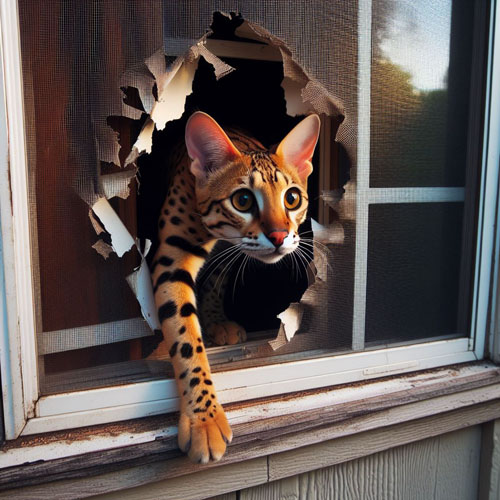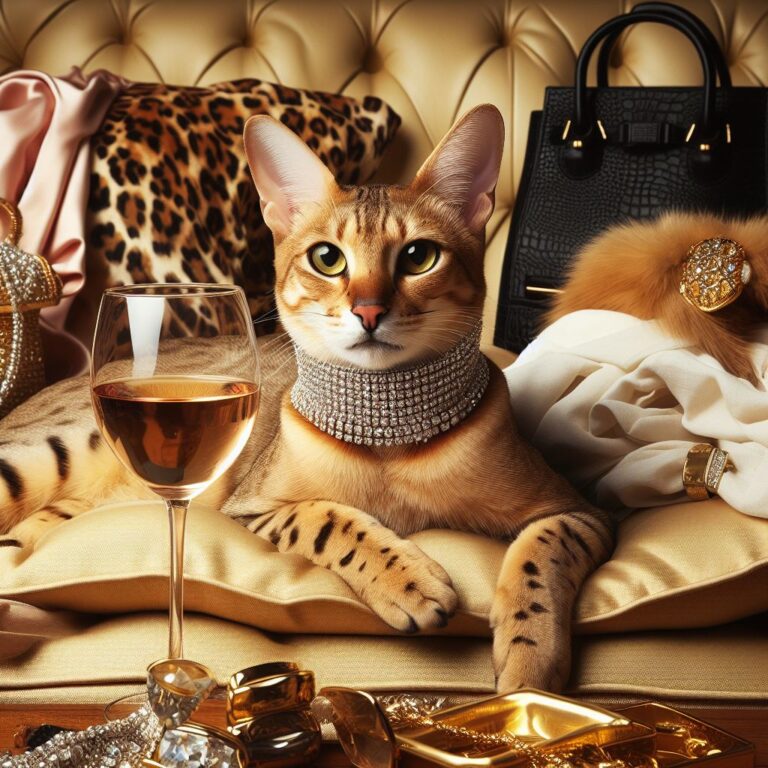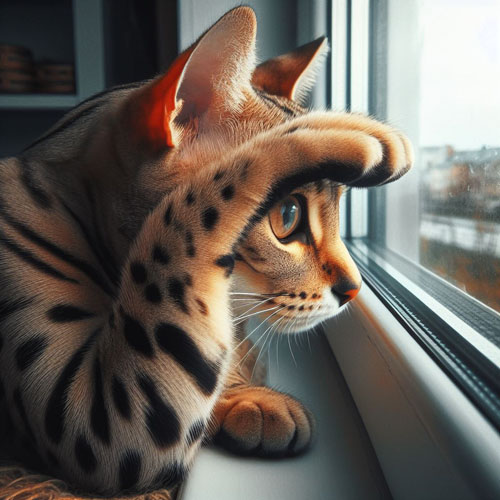Ethical Breeding Practices for Savannah Cats
Ethical Breeding Practices for Savannah Cats: Upholding Standards and Integrity”
In the realm of responsible breeding, it is imperative for breeders to consistently remind themselves of the ethical commitments they make when engaging in the breeding process. Addressing specific issues surrounding these responsibilities becomes essential.
Spaying and Neutering: A growing concern arises from the increasing number of cats originating from unregistered litters. The question that demands attention is why some breeders neglect to spay or neuter their kittens before sending them to their new homes, particularly when there is no intention to contribute to the breed. Safeguarding the integrity of our breeding lines is crucial when placing an unaltered kitten, not meant for breeding, into a new home. In cases where immediate alteration is not possible, breeders must exercise due diligence. Following up with the buyer to ensure their commitment to altering the kitten becomes a responsible practice. While some buyers may argue for a “natural life” for the cat, it is the breeder’s duty to explain that altering is neither cruel nor inhumane. In fact, it can reduce the cat’s susceptibility to certain diseases and infections. Additionally, early spaying or neutering (ESN) can lead to a larger cat, a trait often favored by potential buyers. If a buyer insists on an unaltered kitten, caution is warranted, as it may indicate an intention to breed the cat, prompting the breeder to seek an alternative buyer.
Bad selling practices: Another concerning practice is observed in breeders who auction or give away kittens. This behavior is not only inappropriate but highly unethical. Unlike inanimate objects, a cat is a living, breathing being, and relinquishing control over its living conditions through a giveaway is irresponsible. If finding a home for a cat becomes challenging, lowering the price is a more ethical alternative. Placing a cat through a contest or giveaway, turning a living being into a promotional item, raises ethical questions about trust and the breeder’s commitment to the welfare of their lines.
Breeder Terminology: Terminology used in referring to Savannah cats as “wild animals” instead of “domestic” is causing a detrimental impact on the breed’s reputation. Associating the breed with the term “wild animals” instills fear and contributes to the misguided perception that leads to legal restrictions. It is essential for breeders to refrain from using such terminology and to cease referring to Savannah kittens as “cubs,” a term perpetuating the misconception that these cats are akin to large wild felines.
The breeding community must reflect on the current state of the breed and the impressions conveyed to potential buyers. When did breeding Savannah cats become a marketing endeavor employing questionable selling tactics? Breeders bear the responsibility of upholding a standard and operating with integrity.
To reinforce ethical breeding practices, adhering to basic rules is essential:
- Screening Buyers: Ensure potential buyers provide a safe and suitable environment for a cat. Verify their commitment to offering a forever home. If selling as a breeder, confirm the buyer understands the breed’s needs, emphasizing the welfare of the breed over financial gain.
- Avoid Selling Unaltered Cats Indiscriminately: Gauge the intentions of buyers and assess their approach to the breed. Selling unaltered cats to individuals viewing Savannahs solely as a business opportunity can lead to contractual issues, neglect of the breed’s best interest, and potential harm to the cats. Rescue cats should never be sent out unaltered.
- Exercise Honesty in Breeding: Refrain from being “kitten blind” and avoid selling breeding cats with unfavorable physical or temperament traits to new or experienced breeders. Be transparent about the quality and type of the cat, resisting the temptation to profit from selling every kitten with breeding rights. Only pass on the best candidates to contribute to a breeding program, setting a high standard for the breed.
Backyard Breeding: Unethical backyard cat breeders (BYB) represent a concerning facet of the feline breeding landscape, characterized by practices that prioritize profit over the well-being of the animals. This happens because breeders do not do early spay and neuters (ESN). These BYB’s are operating without the necessary knowledge, facilities, or adherence to ethical standards, these breeders contribute to the proliferation of health issues among cats. Backyard breeding often occurs in overcrowded and unsanitary conditions, exposing both parent cats and kittens to heightened risks of diseases and neglect. The lack of proper veterinary care and genetic screening can result in the perpetuation of hereditary disorders within certain breeds. This profit-driven approach not only compromises the health and temperament of the cats involved but also contributes to the broader challenges of overpopulation and the strain on resources for animal welfare organizations. Addressing the issues associated with unethical backyard cat breeders requires a multifaceted approach, including public awareness, education, and regulatory measures to ensure the well-being of feline companions.
Profit-Driven Breeding: In some cases, breeding operations prioritize profit over the well-being of the animals. This profit-driven approach can result in neglect, inadequate veterinary care, and the perpetuation of genetic issues within certain breeds. Even a good breeder will not do ESN to make a higher profit. After all, spaying and neutering cost money, right?
The Importance of Responsible Pet Ownership: The key to combating unethical breeding practices lies in promoting responsible pet ownership. Prospective cat owners should be encouraged to adopt from reputable breeders who prioritize the health, temperament, and overall welfare of their cats. Education on the responsibilities of pet ownership can play a pivotal role in curbing unethical practices.
In conclusion, responsible breeding is not just about producing kittens but also about upholding ethical standards and fostering the well-being of the breed. As awareness grows about the impact of unethical breeding practices on cat welfare, there is an increasing need for collective action. Breeders play a pivotal role in shaping the future of Savannah cats, and it “is their duty” to ensure that the breed thrives with integrity and respect for the animals involved. By advocating for responsible pet ownership, and supporting and promoting ethical breeding standards, we can work towards a future where cats are bred and cared for in environments that prioritize their health, happiness, and overall well-being. It is only through these concerted efforts that we can ensure a brighter future for our Savannah Cat companions across the region.
Keywords: Savannah Cats, Ethical Breeding, Responsible Cat Ownership, Feline Welfare, Breeder Integrity





